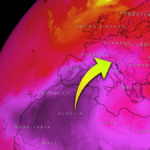Undoubtedly, Asia is currently leading the world as the fastest-developing continent. With projected new trade routes, sustainable development efforts, and the growing importance of green transformation in response to increasing energy, food, and security demands, member states of the Conference on Interaction and Confidence Building Measures in Asia (CICA) are deeply concerned. From North Asia to the Indian Ocean and from East Asia to the Aegean Sea, these issues are pivotal for the region. However, the feasibility of the ambitious carbon-neutral plans pursued by countries in line with their green transformation goals remains a question. In this context, CICA, with its five dimensions encompassing confidence-building measures, dialogue, connectivity, synergy, and best practices, offers a platform for member states to achieve their goals.
At the Sixth CICA Summit, combating climate change and emphasizing the significance of CICA’s environmental dimension for future cooperation were key issues highlighted by distinguished Heads of State or Government and high-level representatives. Why is the environmental dimension so crucial for the future of the CICA region?
The CICA environmental dimension focuses on three priority areas: sustainable development, environment protection, and natural disaster management. Each priority area has its own coordinator and co-coordinator. For example, Thailand is the coordinator for sustainable development, Mongolia is the coordinator for environment protection, with Bangladesh and China as co-coordinators, Iran is the coordinator for natural disaster management, and Bangladesh is the co-coordinator.
According to the updated CICA Catalogue of Confidence Building Measures (CBMs), member states have identified key areas for cooperation in environmental matters, including sharing information on best practices regarding national environmental protection and sustainable development policies. They also exchange information on natural and industrial disasters that may impact neighboring countries. Additionally, seminars, workshops, conferences, and training sessions are held within the priority areas of the CICA environmental dimension. The topics covered by coordinating and co-coordinating countries encompass green transformation, sustainable development, low-carbon developments, waste management, carbon markets, natural disasters, and circular economy.
Recent history has demonstrated that Asia is susceptible to various climatic events and natural disasters. CICA member states have faced scorching weather conditions, droughts, floods, and earthquakes. For instance, Pakistan experienced devastating floods in 2022, displacing at least 7 million people and causing over 1,700 fatalities. The cost of the floods amounted to approximately 30 billion dollars. Bangladesh witnessed over 7.1 million people being displaced due to climate change in 2022. China, India, Thailand, and the Middle East also faced challenges arising from climate change. Türkiye recently experienced a series of devastating earthquakes. Considering the economic impact of the Covid-19 pandemic, the economic consequences of the climate crisis and natural disasters have become increasingly relevant, highlighting the vulnerability of countries in the future.
Given CICA’s broad geographical coverage, it encompasses various environmental characteristics. Member states are undertaking numerous actions to ensure sustainable development and environmental protection. Major environmental concerns in Asia include desertification, climate change, water scarcity, deforestation, earthquakes, and forest fires. It is worth noting that some CICA countries are environmentally vulnerable. According to the Vulnerability Index score of the Notre Dame Global Adaptation Initiative (ND-GAIN), Afghanistan ranks 168th, Bangladesh 154th, Pakistan 147th, Cambodia 133rd, and India 132nd among the most vulnerable member states. The index evaluates a nation’s vulnerability, sensitivity, and capacity for climate change adaptation. On the other hand, Israel ranks 14th, with Kyrgyzstan, Russia, and Türkiye sharing the 28th place, followed by Kazakhstan in the 33rd place, the UAE in the 40th, and Qatar in the 44th position.
The negative economic impact of the Covid-19 pandemic has compelled countries to seek new solutions. Despite the differing agendas of developed and developing nations, governments are shifting their economic targets towards efficient systems aligned with sustainable development goals. One prominent example is the pursuit of green transformation. Countries aiming to decarbonize their economies are investing more in green technologies, such as carbon capture, mitigation and adaptation, circular economy practices, and water management. Diversifying energy sources and embracing sustainable practices are crucial steps toward ensuring energy security.
United Nations Climate Change Conferences play a significant role in raising awareness and fostering collective action against the extreme environmental events witnessed in recent years. For instance, Egypt, a member state of CICA, hosted COP27 in 2022. The conference resulted in the establishment of funds to provide compensation for developing countries affected by climate-related disasters, marking a significant milestone. Moreover, the engagement of China and the USA, the two countries with the highest carbon emissions, in climate diplomacy at COP27 was a crucial development. Looking ahead, COP28 is scheduled to take place in the United Arab Emirates, another member state of CICA. This underscores the growing relevance of environmental issues in Asia.
One of the major outcomes of the Sixth CICA Summit was the initiative by President Kassym-Jomart Tokayev of Kazakhstan to convene a High-level Conference in Astana in 2024. The conference aims to identify environmental challenges among CICA members. This initiative holds great potential for the establishment of the CICA Council for Environmental Cooperation, benefiting not only the region but also the global community.
Undoubtedly, hosting the 2024 High-level Environmental Conference will be in the best interest of CICA member states. The conference will facilitate the sharing of best practices among CICA countries and foster a sustainable mutual dialogue. As a result, the CICA environmental dimension is expected to progress rapidly alongside other confidence-building measures.
The 2024 High-level Environmental Conference is a priority initiative for the Kazakh Chairmanship of CICA. Kazakhstan’s commitment to achieving carbon neutrality by 2060 sets an exemplary model for other countries in the region. As part of the conference’s preparations, CICA Secretary General Ambassador Kairat Sarybay met with Zulfiya Suleimenova, the Minister of Ecology and Natural Resources of Kazakhstan, in early 2023. During the meeting, the Secretary General highlighted the extensive efforts of CICA member states in adopting green technologies and their ambitious goal of achieving carbon neutrality. Both sides agreed to organize a series of expert meetings among CICA member states to develop goals and objectives for the conference, recognizing its utmost importance.
CICA is an evolving international organization, and its environmental dimension continues to strengthen its capabilities. With the dialogue and support of member states, the interest in environmental topics is steadily increasing, aligning with the region’s sustainable development goals.
Source : MM News











Add Comment